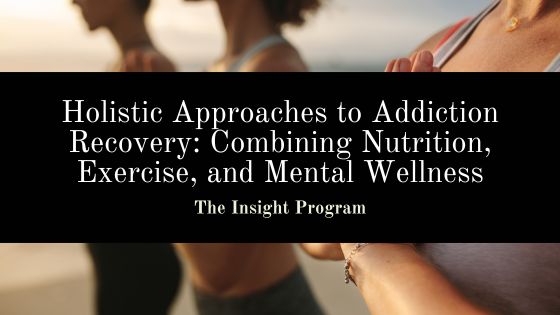Addiction recovery is a complex journey that extends far beyond merely quitting a substance. Holistic approaches, which address the mind, body, and spirit, are increasingly recognized for their effectiveness in fostering long-term recovery. By combining nutrition, exercise, and mental wellness practices, individuals can build a strong foundation for a healthier, more balanced life.
The Role of Nutrition in Recovery
Substance abuse often depletes the body of essential nutrients, leading to imbalances that can affect mood, energy levels, and overall health. A well-rounded diet rich in whole foods can help repair this damage, improve mental clarity, and stabilize emotions.
- Replenishing Nutrients: Incorporating foods high in vitamins, minerals, and antioxidants can support the body’s natural healing processes. For example, leafy greens provide magnesium, which can reduce stress, while fatty fish like salmon deliver omega-3 fatty acids essential for brain health.
- Balancing Blood Sugar: Frequent substance use can disrupt blood sugar regulation, leading to mood swings and cravings. Eating balanced meals with protein, healthy fats, and complex carbohydrates can help maintain stable blood sugar levels.
- Gut Health: Emerging research highlights the connection between gut health and mental health. Consuming probiotic-rich foods like yogurt and fermented vegetables can enhance gut microbiota, improving overall well-being and reducing anxiety and depression symptoms.
Exercise as a Recovery Tool
Physical activity offers numerous benefits for individuals in addiction recovery, contributing to both physical and mental health.
- Stress Reduction: Exercise reduces cortisol levels and releases endorphins, the body’s natural “happy hormones,” which can counteract feelings of anxiety and depression.
- Building Routine: Regular exercise helps establish a daily structure, which is crucial for individuals transitioning from the chaotic lifestyle often associated with addiction.
- Improving Sleep: Many people in recovery struggle with sleep disorders. Moderate exercise can promote better sleep quality by regulating circadian rhythms.
- Reinforcing Commitment: Engaging in physical challenges, whether it’s yoga, running, or weightlifting, fosters a sense of achievement and reinforces the commitment to personal growth.
Prioritizing Mental Wellness
Mental health and addiction are closely intertwined. Addressing psychological well-being is a cornerstone of holistic recovery.
- Mindfulness and Meditation: Practices like mindfulness meditation teach individuals to stay present, reduce impulsive behaviors, and manage cravings effectively. Research shows that mindfulness can lower relapse rates by helping individuals cope with stress.
- Therapeutic Support: Therapy, whether individual, group, or family-based, provides a safe space to explore underlying issues and develop coping strategies. Cognitive-behavioral therapy (CBT) is particularly effective for identifying and altering negative thought patterns.
- Community and Connection: Building a supportive network through recovery groups or community activities combats feelings of isolation and provides accountability.
Integrating These Elements
Holistic recovery is not about choosing one pathway but about integrating nutrition, exercise, and mental wellness into a cohesive lifestyle. For instance, a typical day might include a nutrient-dense breakfast, a morning yoga session, and an afternoon therapy appointment. These elements work synergistically to strengthen resilience and foster a sense of empowerment.
Final Thoughts
Recovering from addiction is a deeply personal and transformative process. Holistic approaches honor this individuality, offering tools that address the whole person rather than just the symptoms. By prioritizing nutrition, exercise, and mental wellness, individuals can reclaim their lives and build a future grounded in health and vitality.

